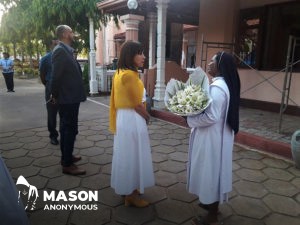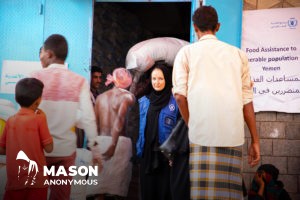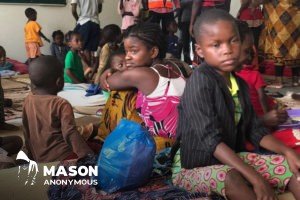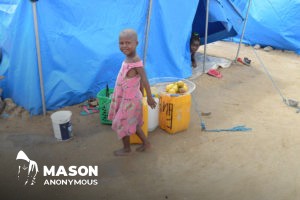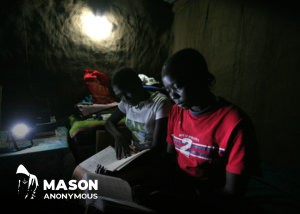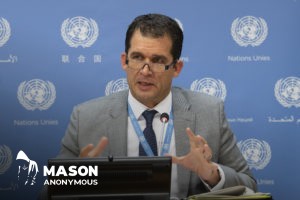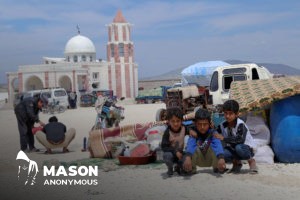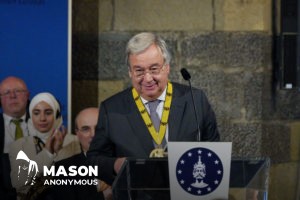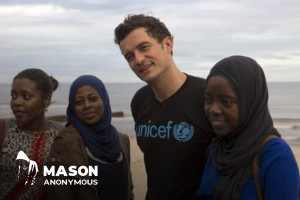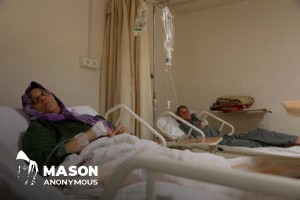Mozambique pledging conference hopes to soften devastating blow of back-to-back cyclones
As some 1.85 million people in Mozambique try to recover from back-to-back cyclones Idai and Kenneth, the United Nations Development Programme (UNDP) on Friday kicked off a two-day pledging forum to drum up funds to help get the vulnerable country get back on its feet.
The International Pledging Conference is taking place in the coastal city of Beira, one of the areas worst hit by the cyclones, hoping to raise $3.2 billion to “facilitate the reconstruction and building of resilience in the affected areas”.
Read our full coverage here.
UN expert criticizes States for ‘ganging up’ on Wikileaks’ Assange; warns against extradition, fearing ‘serious’ rights violations
After visiting Julian Assange in a London prison, an independent UN human rights expert expressed urgent concern on Friday, for the Wikileaks co-founder’s well-being, accusing “a group of democratic States” of “ganging up” on the prisoner to “isolate, demonize and abuse” him and warned against extraditing the controversial publisher to the United States.
“My most urgent concern is that, in the United States, Mr. Assange would be exposed to a real risk of serious violations of his human rights, including his freedom of expression, his right to a fair trial and the prohibition of torture and other cruel, inhuman or degrading treatment or punishment,” said Nils Melzer, the UN Special Rapporteur on torture, in a statement.
Read our full story here.
Asia-Pacific resolutions provide ‘solid foundations’ towards reaching SDGs
Wrapping up a key annual conference representing the more than 4 billion citizens of the Asia-Pacific region, the head of the UN Economic and Social Commission there said that nine agreed resolutions, provided a solid foundation for reaching the 17 Sustainable Development Goals.
Addressing the closing ceremony, ESCAP Executive Secretary of ESCAP Armida Alis-jahbana said the decisions were “firmly anchored in the 2030 Agenda and provide solid foundations on which to build upon.”
She said that putting resolutions into practice was “essential to achieving a transformed and resilient society in Asia and the Pacific.” Seeing action at a sub-regional level was also key: “I hope this will be a first step towards more systematically identifying common priorities”, she said.
More Somali refugees opt to return from war-torn Yemen
More Somali refugees are leaving war-torn Yemen, and choosing to return home, amid rising safety fears. That’s according to the UN refugee agency (UNHCR) which said on Friday that the latest boat carrying 125 refugees departed the port city of Aden this week, bringing men, women and children back to Somalia – where insecurity is also rife – in time for the end of the fasting month of Ramadan.
A total of around 4,300 have returned to the Horn of Africa country, since the rollout of a UNHCR-facilitated Assisted Spontaneous Return programme, in 2017.
Among those fleeing Yemen this week were Somalis born there to refugee parents, and others who had initially seen Yemen as a safer place to live and work, hoping to escape conflict at home.
UN Security Council resolution extends African Union peacekeeping mission in Somalia, reduces troops
Against of a backdrop of sustained violence in Somalia, the UN Security Council adopted unanimously on Friday a resolution to extend the mandate of the African Union peacekeeping mission in Somalia, AMISOM, by one year, ahead of the 2020 elections.
In addition, troops are to be reduced by 1,000, in line with the existing plan to gradually transfer peacekeeping responsibilities to Somali security forces. The cuts will be implemented based on a transition plan and according to needs on the ground.
UN chief calls for ‘utmost restraint’ in Sudan as military rulers declare civilian sit-in, a threat
The UN Secretary-General called for “utmost restraint” on the part of Sudan’s military leadership on Friday, after a week of rising tension with demonstrators, over stalled talks towards a return to civilian rule. Protestors have been staging a sit-in in central Khartoum – one of the factors which led to the military overthrow of former president, Omar al-Bashir in April. But according to news reports, the military now see the sit-in as a threat, and concern is rising that they may move to clear the site by force.
In his statement, António Guterres stressed “the importance of upholding the human rights of all citizens, including the right to freedom of assembly and of expression.” The UN chief noted a communique adopted by the African Union (AU) Peace and Security Council last Monday, and welcomed the progress achieved by the generals and opposition leaders in transition talks so far.
“The Secretary-General calls on the parties to resume and conclude the negotiations over the transfer of power to a civilian-led transitional authority as soon as possible, as required by the African Union”, said the statement. The UN is committed to working with the AU to support to process, “and stands ready to support the Sudanese stakeholders in their efforts to build lasting peace”, the statement concluded.
‘To live is to choose’: the UN issues a new stamp paying tribute to Kofi Annan
To honour former UN chief Kofi Annan, who passed away last August, the UN Postal Administration issued a definitive stamp of US$1.30 on Friday.
The stamp features a portrait of the late Secretary-General by Norwegian renowned artist and engraver Martin Mörck. The quote on the stamp reads “To live is to choose. But to choose well, you must know who you are and what you stand for, where you want to go and why you want to get there.”
Kofi A. Annan of Ghana, was the seventh Secretary-General of the United Nations, and served from 1997 to 2006.
Listen to or download our audio News In Brief for 31 May on SoundCloud:
